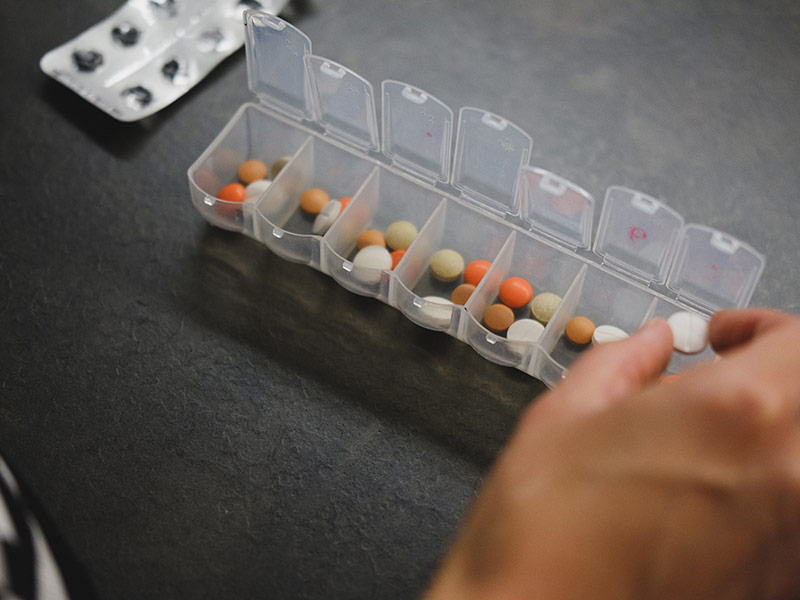Articles Tag: Understanding Therapy
What is talk therapy? How can it help us deal with distress? How can it help us deal with mental illness?
Talk therapy (psychotherapy) is usually conducted by therapists (psychologists and counsellors) although some psychiatrists are also trained to conduct it. Since the brain changes with experience, prolonged periods of distress can cause mental illness to develop. However, it is that very nature of the brain that enables it to heal again through positive experiences. One such positive experience is talk therapy and we now know that regular therapy sessions can also heal the brain.
Distress occurs due to a buildup of unpleasant emotions inside of us and releasing those emotions in a healthy manner is key to recovering from distress. Talking about stressful experiences is one of the best ways to prevent the buildup of unpleasant emotions and alleviate distress. Sometimes it is difficult to find a good listener and that is where therapists come in. Therapists are professional listeners who use a variety of techniques to help sufferers deal with the unpleasant emotions that have built up inside of them. Therefore, therapy is not just useful for people suffering from mental illness but also those who are affected by chronic distress.
Therapy is of various types (cognitive behavioural therapy, supportive therapy, psychodynamic therapy, dialectical behavioural therapy), and the type of therapy chosen is based on the requirements of the sufferer and the skillset of the therapist. Although therapy alone can often bring great benefit to the sufferer, in more severe conditions, it needs to be used in conjunction with medications.
It is also very important to note that since therapy is such an intimate process, the therapist and sufferer must develop a good relationship for the therapy to be effective. This is called the therapeutic alliance and it is normal for sufferers to go to different therapists before they find one with whom they feel comfortable.
What are psychiatric medications and what role do they play in the treatment of mental illness? What are the limitations and adverse effects of medications?
Psychiatric medications are prescribed by psychiatrists. They help in cases when the symptoms of mental illness have become so severe that they are causing significant distress to the sufferer. However, psychiatric medications are not a cure but are useful in getting the symptoms of mental illness under control. They do this by numbing the distress that sufferers are feeling so they are able to process the unpleasant emotions that were overwhelming them.
They are to be used in combination with other forms of treatment in order for the sufferer to achieve a complete recovery. In addition there is no set regimen for a particular condition. Some medications may work well with one sufferer but have no benefit for another even if they are diagnosed with the same condition. Usually psychiatrists need to experiment with different medications in order to figure out which ones work for their patients. This procedure is normal and, despite the inconvenience, the compliance of the sufferer is extremely important.
It is a well-known fact that psychiatric medications have certain side effects that may cause great distress by themselves. This fact often discourages sufferers from taking medications and is also used by other people to discourage sufferers from continuing with the medications. It is important to see whether the improvement in health outweighs the side-effects caused by the medications. If it does, then it is advisable to continue the medications. If not, then the sufferer can inform their psychiatrist who can then change the medication to one which causes fewer side effects.
Is recovery from mental illness possible? What is the journey of recovery?
Recovery is a journey that all sufferers must undertake in order to overcome their mental illness. A common misconception is that recovery from mental illness is impossible and this may cause sufferers to lose hope. However, this is not true and today a range of treatment options exist which have proven to be effective. Mental illness occurs due to adverse life experiences which are unique to different sufferers. As a result, there is no set formula for recovery and different treatment options work for different sufferers.
While professional help may be necessary, the goal of recovery shouldn’t be to become dependent on mental health services. Since mental illness is caused by prolonged distress, recovery should aim help sufferers manage distress by helping them identify, adopt and practice healthy coping skills. To learn more about healthy coping skills, visit the manage distress section.
It is also important to keep realistic expectations when it comes to the journey of recovery since it can have multiple ups and downs. For some sufferers, recovery may mean learning to live with the symptoms of the illness rather than a complete end of symptoms. Sometimes we may feel that we are doing great and have fully recovered, but then something bad can happen that may cause a relapse (return of the symptoms of mental illness). If a relapse has occurred, we must remind ourselves that it is part of the journey and we must not lose hope so we can recover again.
For real life examples of successful cases of recovery visit the survivor stories section.
Today, a range of treatment options are available for mental illness with different options working for different people. Professional help can be divided into four main categories; medication management, talk therapy, rehabilitation centers and alternative therapies.
Medications (psychopharmacology) are prescribed by psychiatrists while talk therapy (psychotherapy) is usually conducted by therapists (psychologists and counselors).
Rehabilitation centers involve admission of sufferers in specialized mental health centers which offer services that aren’t available in a community setting. Rehabilitation centers should not be confused with asylums. Asylums resemble jails and their goal is to isolate sufferers from society, not treat them. Rehabilitation centers, in contrast, are designed to help sufferers by providing them with an environment conducive to recovery. They are greatly beneficial for those sufferers who don’t have a support system at home, for whom a change in environment is essential for recovery such as those suffering from addiction, or for those who need to regain functionality and social skills.
Aside from the aforementioned treatment options, a range of alternative therapies may also greatly benefit the sufferer such as:
- Art therapy utilizes the creative process to help sufferers explore and come to terms with their unpleasant emotions, develop self-awareness, alleviate anxiety and increase self-esteem.
- Dance/movement therapy includes the therapeutic use of movement to access creativity and help ease tension throughout the body.
- Hypnotherapy involves sufferers being guided into a focused state of deep relaxation.
- Music therapy makes use of health benefits of music, including lowered stress and increased pain thresholds.
- Yoga is a spiritual practice designed to promote a calm mind and an increase in self-awareness.
- Meditation involves different techniques aiming to quieten the mind and put the sufferer into a state of calm and stillness.
- Peer support is conducted by peer specialists who use their lived experience to guide sufferers towards recovery.
So aside from these options, what else can sufferers do to help themselves? For more information select an option below:
Keywords / Tags
- Anxiety|Depression
- Anxiety|Mental Illness
- Caring for Sufferers
- Communication Skills
- Depression|Mental Illness
- Distress
- Distress|Grief and Loss
- Distress|Healthy Parenting
- Distress|Relationship Problems
- Empathetic Listening
- Healthy Life
- Healthy Parenting
- Managing Distress
- Mental Illness
- Relationship Problems
- Self Care
- Understanding Therapy
- Work/School Life Balance




